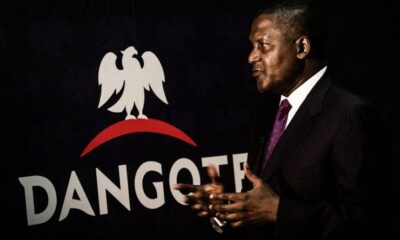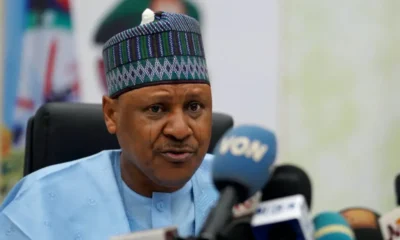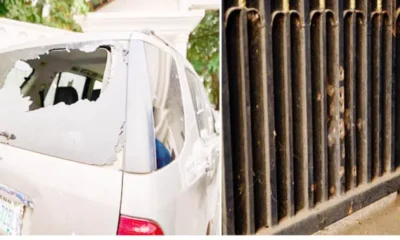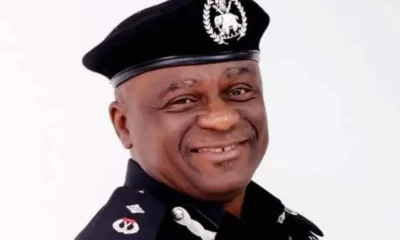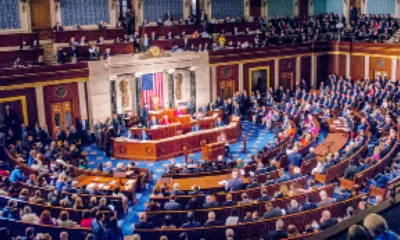News
Dissent to President appointing INEC officials swells
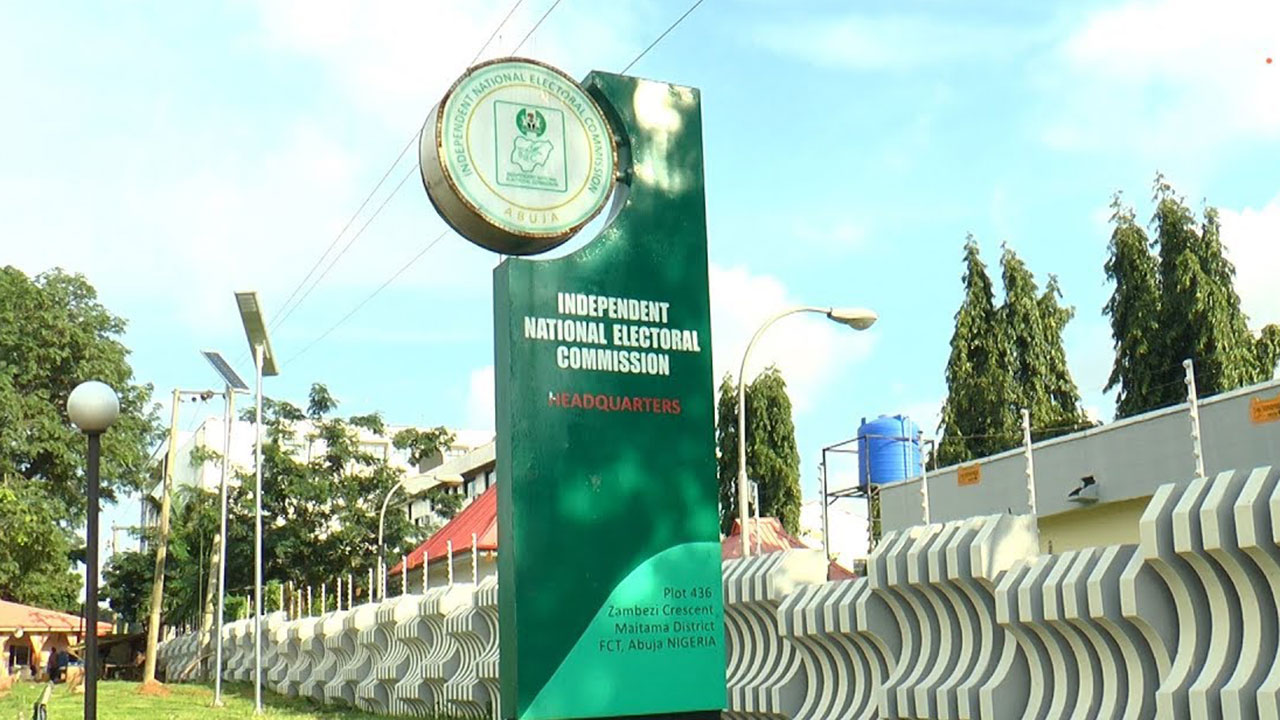
• NGOs, youth groups demand urgent action on Electoral Reform Bill
• Aregbesola wants political parties to nominate electoral chiefs
• Obi tells INEC to nip electoral crimes in the bud
Leaders of Nigeria’s registered political parties, yesterday, called on the National Assembly to strip the President of the power to appoint the Independent National Electoral Commission (INEC) chairman and top officials of the electoral body.
This was as the clamour for comprehensive electoral reform in Nigeria gained significant traction, with as civil society groups and youth associations throwing their weight behind a bill undergoing legislative processing at the National Assembly.
Also, former governor of Osun State and National Secretary of the African Democratic Congress (ADC), Rauf Aregbesola, emphasised the need to overhaul the country’s electoral process to inspire confidence in the electorate and guarantee credible elections.
In the same vein, Labour Party (LP) presidential flagbearer in the 2023 election, Peter Obi, challenged INEC and security agencies to raise the bar of integrity by thoroughly screening candidates’ credentials before the 2027 elections.
Insisting that the move is crucial for ensuring credible elections, the party leaders said, political parties as the backbone of democracy, must have a voice in the appointment of election officials.
Chairman of the Inter-Party Advisory Council (IPAC), Yusuf Dantalle, made the call at a consultative session convened by the House of Representatives Committee on Constitution Review in Abuja.
Dantalle, represented by IPAC Deputy Chairman, Dipo Olayokun, said “the country cannot have free and fair elections” with the INEC leadership beholden to the executive.
IPAC stated: “The removal of the power to appoint the chairman, secretary and national commissioners of INEC is to promote the independence of the commission.
“It is necessary to set up Independent Appointment Committee (IAC) composed of representatives from all registered political parties and civil society organisations, National Judicial Council (NJC) and a committee of the National Assembly, to be appointed by both the majority and minority arms of the Senate and House of Representatives, thereby ensuring that all parties have representatives in the IAC.”
IPAC also called for the scrapping of State Independent Electoral Commissions (SIECs) and the transfer of responsibility for local council elections to INEC.
It further proposed that any seat vacated due to decamping or death should be filled by the original winning political party through a replacement process, rather than a very expensive, torturous election.
Addressing the stakeholders, Senate President Godswill Akpabio urged political leaders to treat the Constitution as a living document that must evolve with the nation’s changing realities.
Represented by Sen Tahir Monguno, the Senate president called for a strengthened INEC and a judiciary insulated from corruption and political pressure, citing reforms in India and South Africa.
He described judicial reform, women’s inclusion, and local council autonomy as the heartbeats of the republic, adding that electoral credibility and justice remain the twin pillars of democracy.
The Deputy Speaker, House of Representatives, Benjamin Kalu, noted that credible elections, empowered local councils, and inclusive governance require institutional reforms that transcend partisan interests.
Submitted by former senator for Anambra South, Ikechukwu Obiorah, the electoral reform bill seeks to strip the President and governors of the power to appoint INEC and SIEC officials. It proposes, instead, the establishment of a new, internationally-influenced electoral body, a move its proponents describe as essential to restore credibility, impartiality and integrity to Nigeria’s electoral process.
Addressing the press in Abuja, President of the National Muslim Youth Association (NMYA), Abdulrahman Aliyu, declared that free and fair elections remain elusive as long as those who contest elections continue to appoint the officials who conduct them.
“We align fully with Obiorah’s position that credible elections are impossible when the President and governors, who are often contestants or partisan stakeholders, appoint the very bodies that organise the polls,” Aliyu stated. He added that recent technological reforms, such as the Bimodal Voter Accreditation System (BVAS) and INEC Result Viewing Portal (IReV), while commendable, cannot function as intended in the absence of a truly independent electoral body.
“Without integrity in the system, BVAS and IReV can be manipulated. The core issue is not the technology, but the compromised institutions behind it,” Aliyu said.
NMYA urged the National Assembly to consider and pass the constitutional amendment bill without delay and urged the Presidency and Houses of Assembly to collaborate in ensuring that the amendment becomes law.
According to the bill, the Nigerian Bar Association (NBA) would elect one commissioner from the South-East; the Nigerian Medical Association (NMA) would elect one from the South-South; the Nigerian Union of Journalists (NUJ) from the South-West; the Academic Staff Union of Polytechnics (ASUP) from the North-Central; Academic Staff Union of Universities (ASUU) from the North-East; and the Institute of Chartered Accountants of Nigeria (ICAN) from the North-West.
Obiorah argued that such a composition would reduce the likelihood of undue influence, promote professionalism and enable the commission to act with greater transparency and credibility.
SPEAKING at the launch of Athena Election Observatory (AEO) and the unveiling of a report, ‘Innovation in Electoral Technology (2015-2025): Gains, Gaps and the Road Ahead’ by the Athena Centre for Policy and Leadership, Aregbesola kicked against a situation where the principal beneficiary of manipulation nominates the INEC chairman and dictates what happens at the polls.
He proposed a new regime where all the political parties with at least five members in the National Assembly nominate people that will be at the helm of affairs in INEC on an equal basis.
Aregbesola stated that the issues involved in Nigerian elections were complicated, from the appointment of the chief electoral officer and all the commissioners to all the issues involved, adding that they do not even inspire confidence.
ON his part, Obi warned that Nigeria risks deepening its leadership crisis if people who forge documents continue to gain access to public office unchecked.
“Many of those occupying public office today scaled through 2023 with forged certificates and fraudulent affidavits. INEC, security agencies and even the legislature looked away. This cannot continue. The process of getting into office is more fundamental than what anyone does thereafter,” Obi said.
Writing on his verified X handle with the theme, ‘The danger of making crime a norm’, Obi lamented that forgery, a crime that attracts instant disqualification and prosecution worldwide, is trivialised in Nigeria, often dismissed as “pre-election matters.”
According to him, this double standard undermines the moral foundation of leadership.
-

 Business17 hours ago
Business17 hours agoDangote Refinery to Supply 65m Litres of Petrol Daily
-

 Metro15 hours ago
Metro15 hours agoCourt ruling didn’t exempt states – Group tells Lagos AG over VIO activities
-

 News17 hours ago
News17 hours agoFG Rejects US Congressmen’s Stance On ‘Religious Persecution’
-

 Politics17 hours ago
Politics17 hours agoObi, Oyegun, Other ADC Chieftains Attacked In Edo
-

 News17 hours ago
News17 hours agoAlleged UK property fraud: Ozekhome faces 12 fresh charges
-

 Politics15 hours ago
Politics15 hours ago‘A stain on democracy’ — ADC condemns attack on Obi, party chieftains in Edo
-

 News17 hours ago
News17 hours agoPROFILES: The DIGs Who May Be Affected By Disu’s Appointment
-

 News15 hours ago
News15 hours agoUS Push To Scrap Sharia Sparks Outrage



